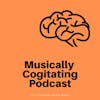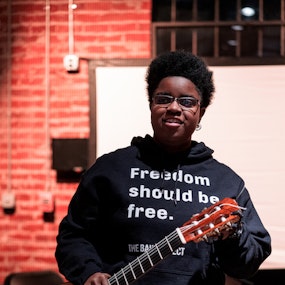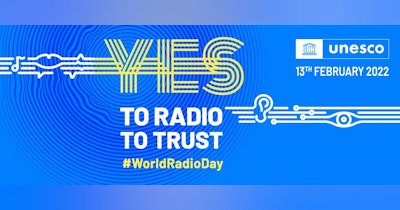Radical Social Change
- Those without access to funding are most often able to make the most change
- “Radical change is when we are able to pull out the weeds that choke our existence by the roots.”
- We don’t spend enough time imagining what we want our communities to look like. We are too caught up in the present to see the future and that harms us
- Organizations have become mini corporations = non-profits are just businesses with a diff tax code
- Activism is held hostage to our jobs
- Accountability
- No longer accountable to our community but to the sources of money/donors
- “There is a very thin line btw ‘milking the system’ and being milked by the system.”
- MST Movement -Landless Workers Movement
- Were able to organize and mobilize in their own communities because they created their own systems and frameworks for everyday live
- “Social change must be linked to how people live their everyday lives
- Needs to promote growth
- We need to free ourselves from the hierarchical structures and must imagine the alternatives
- Alternatives are of course possible, but what about money? Money seems to be the biggest thing keeping us where we are
- “...struggle to find ways of separating my activism from my paid work by trying instead to bring my activism into how i live my life”
Are the cops in our heads and hearts?
- Revolutionary models should focus on organizing and building from the power that people already have, our typical models of organizing are based on re creating oppressive structures not taking them away. (success in America and other western countries is often the idea of occupying the space of your oppressors.)
- Once again bringing up the Zapatistas and Free communities in Brazil
- Highlights the importance of recognizing daily life/communities as political work
- Really flipping the narrative and thinking of communities as empowered as opposed to what they lack.
- Thinking beyond the state -> alt. Ideas that the est. norms.
- Need a deeper analysis of power “ difference between taking power and creating power”
- Previous models of organizing and movements have focused too much on recreating oppressive governance structures modeled after the same system we’re trying to replace - want to discuss this within the context of music
- The vision for this model should be liberation
- Challenges to Non-Profit System
- You don’t need hierarchy and centralization for mass political organizing.
- Direct collective power
- US non-profits want to show ownership -> plp come to them
- The cop in the head - internalized capitalism
- “One of the scariest manifestations of modern capitalism is the system’s ability to co-opt experiences, practices, even culture, and to then re-create and repackage them within a careerist, profit-driven and competitive logic”
- Organizing in every-day-life “What if instead I could integrate my political participation into everyday life?
- We’d have to sacrifice.
- NP’s have not been historically interested in guiding much slower base building work that is necessary for change
- People who are not ‘professionals’ do not have equal access to organizing.
- Forces us to collaborate with the state.
- Alot of NP’s directors know a lot less about political history, analysis, and movement building that people on the ground.
- New relationships with NP’s
- It might be possible to keep some of the good of the np system
- NP’s should be accountable to movements.
- The np should dissolve
- Cop in the heart - internalized patriarchy
- Revolution often still acts with other oppressions present (i.e. unequal workload of women)
- We must be intersectional
- In the strongest mvt the bulk of political work happens close to home
- We must meet people where they are at.
Nonprofits and the Autonomous grassroots
- Grassroots means,
- “No, the revolution will not be funded. We would need to find it first”
- Overview: This essay discusses the idea of being an ‘affiliate of the state’ and the reality that NP’s adopt binding laws and other structures -> and how this has led to the “loss of political face and movement building.” Basically, the move to file for 501c3 status has neutered radical change and the will to organize for radical change (often b/c NP’s are the only solution that is presented in the modern world.)
- Note: essay is framed within the idea that the US is drifting further right, and NP’s are generally the spokespeople for the left.
- Thesis: The NP “poses as many challenges to organizing as it does solutions.”
- History (don’t want to discuss too much, since it’s been covered)
- The idea of working with the establishment as opposed to against “the mission was to start influential non-profit organizations that could press for the incremental gains that would perhaps lead, finally, to those Marxian qualitative leaps.”
- Realities of NPs:
- “NP is cast as the straw man against which a multitude of political frustrations can be vented” - “right wing attacks” (essay written pre- 2007)
- Priorities of leaders often out of alignment with the community.
- Due to structure -> young and working class (I would add every other marginalized community) persons are often not centered -> prob. A result of professionalism as well.
- Individualism and competition
- BURNOUT
- Alternatives:
- What are we running to?
- What would today's Left look like had its grassroots never adopted NP structure?
- Historic labor movement (i.e. Chavez) insisted on membership dues so the works OWNED the organization. Not donors.
- Discusses the Zapatista and their success. Largely they work outside the system, and if they did would with a 501c3/ngo those orgs were accountable to them. (also intersectional)
- Collectives run by volunteer activists, organizers and visionaries.
- If you are to continue to work within the NP sphere:
- Push leg. Policy
- Gaining elections in swing states (or fight voter suppression i.e. GA)
- Winning over commercial media
- It’s smoothing the path of revolution so grassroots movements can thrive.
On Our Own Terms
- Overview: A good look at Sista II Sista, their programming, the challenges they’ve faced by being too ‘radical’, and ultimately needing to find a solution that subverted the challenges/restrictions of the NPIC.
- Vision
- Space for younger WOC to learn, speak, and develop. And in turn, the org. Be responsive to their needs.
- Workshops and classes on various topics.
- Intersectionality of oppression - how to resist at various points of oppression (not just class).
- Community empowerment -> mvt away from individualistic/isolated transformation
- Learning to support the leadership of women in the Global South -> facing many of the same oppressions but under capitalist imperialism.
- Foundations
- Some funders found anti-police brutality work ‘distasteful
- Some thought they were brainwashing people within their program
- Incredibly draining
- New Directions
- Where are we as a people’s social justice movement in the US today?
- “Somehow many of us got sucked in by the notion that the most effective way to build a base for political education and community organizing is by creating non-profit organizations.”
- Basically decided to no longer have a full time staff no more foundation fundraising. And adopt a volunteer collective and operate through grassroots fundraising.
- A Global Perspective
- Strongest mvts are those that NGO’s could collapse and the mvt would be fine
- Often NGO’s are only there for specific things.
- NGOS/NP’s are corporate and run top-down
- Reality Check
- PHILANTHROPY WAS NOT CREATED TO SUSTAIN ANY ORGANIZATION, MOVEMENT OF IDEA THAT WOULD UNDERMINE THE GOALS OF THE SMALL % OF THE POPULATION THAT CONTROLS MOST OF SOCIETY’S WEALTH.
- Profits from these foundations are from exploiting labor - specifically that of POC
- “They determine the rules of engagement”
- Fighting for freedom remains unpaid work.
- The Morning After
- Collaboration












